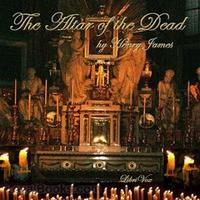Chapter I
He had a mortal dislike, poor Stransom, to lean anniversaries, and loved them still less when they made a pretence of a figure. Celebrations and suppressions were equally painful to him, and but one of the former found a place in his life. He had kept each year in his own fashion the date of Mary Antrim's death. It would be more to the point perhaps to say that this occasion kept him : it kept him at least effectually from doing anything else. It took hold of him again and again with a hand of which time had softened but never loosened the touch. He waked to his feast of memory as consciously as he would have waked to his marriage-morn. Marriage had had of old but too little to say to the matter: for the girl who was to have been his bride there had been no bridal embrace. She had died of a malignant fever after the wedding-day had been fixed, and he had lost before fairly tasting it an affection that promised to fill his life to the brim.
Of that benediction, however, it would have been false to say this life could really be emptied: it was still ruled by a pale ghost, still ordered by a sovereign presence. He had not been a man of numerous passions, and even in all these years no sense had grown stronger with him than the sense of being bereft. He had needed no priest and no altar to make him for ever widowed. He had done many things in the world - he had done almost all but one: he had never, never forgotten. He had tried to put into his existence whatever else might take up room in it, but had failed to make it more than a house of which the mistress was eternally absent. She was most absent of all on the recurrent December day that his tenacity set apart. He had no arranged observance of it, but his nerves made it all their own. They drove him forth without mercy, and the goal of his pilgrimage was far. She had been buried in a London suburb, a part then of Nature's breast, but which he had seen lose one after another every feature of freshness. It was in truth during the moments he stood there that his eyes beheld the place least. They looked at another image, they opened to another light. Was it a credible future? Was it an incredible past? Whatever the answer it was an immense escape from the actual.
It's true that if there weren't other dates than this there were other memories; and by the time George Stransom was fifty-five such memories had greatly multiplied. There were other ghosts in his life than the ghost of Mary Antrim. He had perhaps not had more losses than most men, but he had counted his losses more; he hadn't seen death more closely, but had in a manner felt it more deeply. He had formed little by little the habit of numbering his Dead: it had come to him early in life that there was something one had to do for them. They were there in their simplified intensified essence, their conscious absence and expressive patience, as personally there as if they had only been stricken dumb. When all sense of them failed, all sound of them ceased, it was as if their purgatory were really still on earth: they asked so little that they got, poor things, even less, and died again, died every day, of the hard usage of life. They had no organised service, no reserved place, no honour, no shelter, no safety. Even ungenerous people provided for the living, but even those who were called most generous did nothing for the others. So on George Stransom's part had grown up with the years a resolve that he at least would do something, do it, that is, for his own - would perform the great charity without reproach. Every man had his own, and every man had, to meet this charity, the ample resources of the soul.
It was doubtless the voice of Mary Antrim that spoke for them best; as the years at any rate went by he found himself in regular communion with these postponed pensioners, those whom indeed he always called in his thoughts the Others. He spared them the moments, he organised the charity. Quite how it had risen he probably never could have told you, but what came to pass was that an altar, such as was after all within everybody's compass, lighted with perpetual candles and dedicated to these secret rites, reared itself in his spiritual spaces. He had wondered of old, in some embarrassment, whether he had a religion; being very sure, and not a little content, that he hadn't at all events the religion some of the people he had known wanted him to have. Gradually this question was straightened out for him: it became clear to him that the religion instilled by his earliest consciousness had been simply the religion of the Dead. It suited his inclination, it satisfied his spirit, it gave employment to his piety. It answered his love of great offices, of a solemn and splendid ritual; for no shrine could be more bedecked and no ceremonial more stately than those to which his worship was attached. He had no imagination about these things but that they were accessible to any one who should feel the need of them. The poorest could build such temples of the spirit - could make them blaze with candles and smoke with incense, make them flush with pictures and flowers. The cost, in the common phrase, of keeping them up fell wholly on the generous heart.

